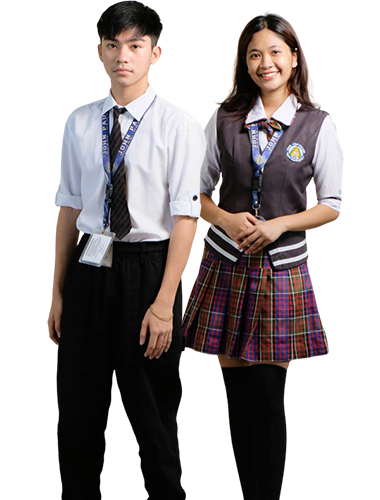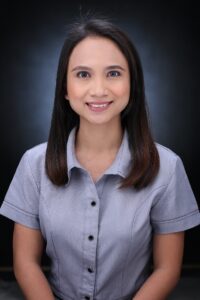
Secondary Program

Secondary Program
This program caters complete secondary education among students in preparation to their promotion in tertiary course. It comprises the six levels of secondary education, 4 years in the Junior High School and 2 Years in the Senior High School. This typology of education adopts the curricula pursuant to the Department of Education prescribed curricula for the secondary course: the Special Science and Technology Curriculum and the Enhanced Secondary Education Curriculum known as the K to 12 Program.
ABM – Accountancy, Business and Management
STEM – Science, Technology, Engineering and Mathematics
HUMSS – Accountancy, Business and Management
GAS – Accountancy, Business and Management
TVL – Accountancy, Business and Management
ICT – Information, Communication Technology
HE – Home Economics
Junior High School
Our priority is to meet the students’ needs while they are in an inclusive and productive school culture during their Junior High School years. We develop well-rounded individuals not only focused on academics but also immersed in character building through the spirit of camaraderie and sportsmanship. For advanced classes, we have the Special Science Class from Grade 7-10 for our creamiest of the crops. These Special Science Classes have additional subjects as part of their advanced curriculum which may include the following:

Head Teacher – Junior High School
Robotics – For Grade 10 students where they are going to create a robot/machine and present their inventions and innovations in groups.
Science Investigatory Project – The students from Special Science classes conducts different investigatory projects in Science mostly consisting of organic components/materials wherein they start working on it from Grade 7 and adapt innovations to the processes and product itself until the can produce a market-quality product by the end of Grade 10.
Journalism – This is an advanced subject for the Special Science class but we also provide training to students from Regular classes who have potentials in the field of Journalism.
Basic Research – As part of John Paul College Junior High School Curriculum, the Grade 10 students, under the guidance of their research adviser, will write their research papers that is focused mostly on the school setting and education. They are to present and defend it in front of panelists. All Grade 10 students from Special Science Class and regular classes undergo this process as part of their requirements to be able to move up to Senior High School.
Senior High School

Head Teacher – Senior High School
Accountancy, Business and Management (ABM) Strand seeks to prepare the young business leaders of tomorrow. ABM strand paves the way for business-related college degrees. It teaches the basic concepts of financial management, accounting, corporate operations. The programs under this strand aims to instill crucial skills that one needs to perform well in their future careers and businesses. Learning about business and finance might be challenging. Nevertheless, taking ABM strand programs will help young entrepreneurs, like you, to adopt the right mindset for brighter careers.
Science, Technology, Engineering and Mathematics (STEM) exposes students to more complex and offers in-depth knowledge on concepts and topics diving to more advance learnings on science and mathematics that equip students on developing their critical thinking skills and problem solving through various projects and research where they can apply scientific, technological, mathematical and engineering concepts as they impart on supporting sustainable and developing community as holistic individual.
Humanities and Social Sciences (HUMSS) is a strand that is also a priority to John Paul College, Basic Education-Senior High School. It is divided into two major parts; the Humanities and the Social Sciences. It is designed to cater the needs of the 21st century learners about humanities which focuses on philosophy, history, literature, religion, music, and the human condition. Whereas social sciences are more related to human behaviour. The field of study here is criminology, gerontology, law, political science, psychology, and human development, among others.
General Academic Strand (GAS) is a Senior High School strand that takes on a generalist approach in preparing students for college. It covers various disciplines like Humanities, Social Sciences, Organization, and Management. Since GAS does not specialize in any strand, you are free to choose any college degree program under the three other strands based on the elective you will choose. Moreover, a possible course to pursue from this strand is Education. What you will gain from the GAS Strand: Hone you creative writing skills. Learn about Organization Management. Learn about Empowerment Technologies. Gain knowledge of Disaster Readiness and Risk Reduction. Develop your communication skills.
Technical Vocational Livelihood Strand (TVL Strand) is designed to develop students’ skills that is useful for livelihood and technical projects. It provides a curriculum that is a combination of Core Courses and specialized hands-on courses that meets the competency-based assessment of TESDA. It has two areas of specialization:
TVL-ICT which focuses on teaching students the concepts and necessary skills in Information Technology.
TVL-HE which focuses on making sure that students are equipped with the necessary skills and in providing excellent services to others and to the community.

